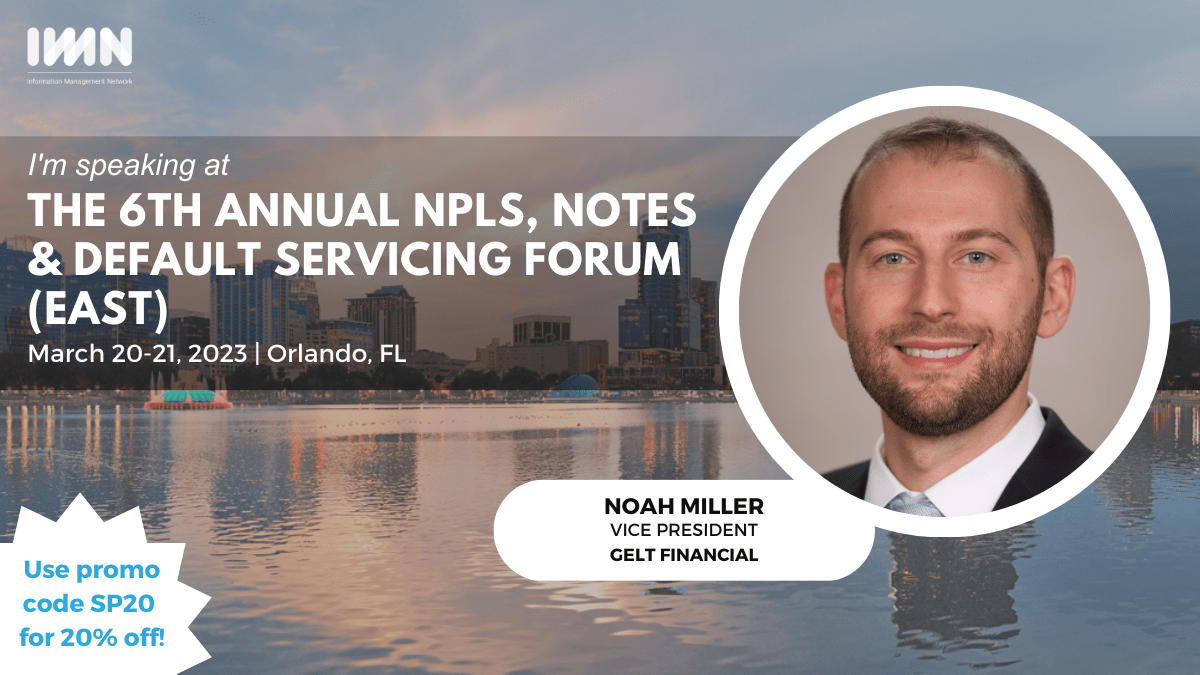Mortgage and Real Estate Professional Tip: If you plan on selling or refinancing real estate, make sure your title to the property is clear and cleaned up. Often there are mortgages, liens, and other things that are not cleared up and still there that no one is aware of. It will save time to clean this up before you start the process.
“Marcy: Hello.
Jack: Marcy, let’s educate mortgage brokers and borrowers on some of the things that they can do ahead of either refinancing or selling the property relating to cleaning up the title. I think a lot of people aren’t focused on the title of their property, so why don’t you tell everyone?
Marcy: Sure.
Jack: You’re the expert on this. What goes on, and you know make pretend, you’re talking to me or someone that they should do if they’re thinking about refinancing or selling the property in advance to make a smoother process.
Marcy: All right, so typically what goes on with title work is, you know if it’s a purchase, refinance, we order title work, and um, I’m going to start off with the purchase, yes?
Jack: I’m sorry, I’m sorry.
Marcy: Sure.
Jack: I sit here, I’m going to turn it over to you, and I’m thinking about something else, but maybe we work with title all the time, yes, but maybe we should start by saying—
Marcy: What is title work, maybe?
Jack: Yes, and there’s a lot of people don’t realize that on every property there’s a history of all the transactions.
Marcy: Right.
Jack: Every time a dead is transferred.
Marcy: Exactly.
Jack: So why don’t you start with that?
Marcy: All right.
Jack: I’m sorry, I’m sorry.
Marcy: Yeah, no, that’s a good idea. All right, so let’s define what title—
Jack: Let me back up. I came up with one good idea today. Can I— Can I go? It’s early. It’s 10. Can I go home now? I’m joking.
Marcy: You’re so funny. All right, so let’s talk about what title work is. On every deal, we have to see what’s going on with the property, so we have to order a title policy, and the title policy protects the lender to make sure that there’s clear title—title insurance on the property. So, anything that went on with the property, if it was bought, it was sold, if there’s a lien, a loan that was paid off, if there was a lien put on the property, if there’s like any back taxes or if there is any um, citations or, you know, anything that’s going on in the property will show up on title. So, we, of course, as a lender, want to make sure we have clear title, which means that we want to make sure that we’re in first position, yes?
Jack: Okay, I feel bad. How many times am I allowed to interrupt you?
Marcy: You can because you’re helping. You’ve been doing this a really long time.
Jack: So, it’s interesting, so I don’t think a lot of people realize that on every property, uh, there is a public record, and its public record. Everything that’s happened to the property since really, I don’t say the beginning of time, but for hundreds of years, especially in a lot of the older cities like I’m from Philadelphia.
Marcy: Properties are old.
Jack: Old, yeah. So, believe it or not, there’s a record of every sale, every mortgage, every lien, if the property was ever in foreclosure. And some of them are really interesting. There’s some people who have a hobby. Trace property in Philadelphia back to like the Revolutionary periods and the Founding Father periods. Boston a lot of the original—
Marcy: I’m from Florida, so nothing that’s old.
Jack: A lot of the original 13 Cuts but it’s interesting because you could see what the history of it, and on some of them it’s very interesting because there’s a lot of deed restrictions. So I guess my point is for this video is all this is public knowledge, so if you want to see like on your if you want to be a newsy neighbor and see what the guy across the street, how much he paid for the house, how much he borrowed 30 years ago, the previous owner, whether a mortgage was released, whether there was a foreclosure, it’s all public information and today you can get a lot of it online just sitting in a laptop.
Marcy: But with that said…
Jack: So, you get— we get title insurance.
Marcy: We get insurance to make sure that we’re in first position. So, whenever you do a loan, there’s always a title agent that also acts as a disbursing agent that’s going to collect everything from everyone. All the monies are involved in the deal, and they’re going to take everything into an account. And then when the loan is cleared to close, they disperse out all the monies. Okay, so that’s also another part of what they do. They provide title insurance, and they also disperse the loans.
Jack: Title insurance, and I’m not a title expert, but what title insurance does, it protects the— if it’s a buyer or borrower and the lender, all parties, that they’re getting free and clear title, that nothing is going to come up on the property that they didn’t know. So, for example, what happens a lot is maybe there was a mortgage, uh— in fact, it happened. I heard a story this morning. There’s a gentleman in our office who’s selling his home, and he bought his home, I think, 32 years ago. He’s selling it now, I think, next week or the week after, and the person he bought the home from 30 something years ago, his mortgage is still recorded. It was never satisfied. And of course, no one knows how to get in touch with them. The guy can be dead.
Marcy: Which is terrible because that’s what happens.
Jack: Yes. So, a lot of times there’s unreleased things on homes,
Marcy: Right.
Jack: If there’s back taxes or that’s part of it. It could be zoning. It could be encroachment issues, a neighbor. Part of title is it gives what’s called the meets and bounds, the legal description, you know what the property lines are. And you have to deal with surveys. So, all of this, it’s very complicated.
Marcy: And it’s very important though. But so that’s why we wanted to like talk about this morning because for Brokers or borrowers out there, it’s good to know what’s going on; on your property before you start looking for a loan. Okay, because what happens is, is like when we get title work back from one of our borrowers, we’re doing a loan, there’s sometimes stuff that comes up on title that they didn’t know about or that they could have started working on because you can have a title agent and you can have a broker, you can have a lender, but at the end of the day, you know whose responsibility it is to clear title. It’s the owner of the property. That’s whose responsibility is. So, you know, we all can help as much as we can, but it’s really up to the owner, the borrower, to be able to get everything needed to clear title. And when I say everything needed, this is what we’re going to talk about. What can come up on title? And Jack had mentioned taxes, different liens. Most common that I see is different loans or UCC’s that have not been released. Most of the time the borrower’s like, “Oh, that was paid off years ago.” But what happens is you have to make sure that there’s a release that’s developed and signed and recorded. So, it’s off of your title. So, Jack, please add some more information.
Jack: Thank you. So, with UCC’s, a UCC—
Marcy: Can you please explain a UCC to everyone, yeah?
Jack: Yes, on— when you borrow money on your property, and there’s a difference between a commercia—there’s a difference, and there’s not a difference between a commercial and residential. So let me talk on a residential owner-occupied
loan. You borrow your mortgage, or a home equity lend. They’re going to file a mortgage on the property. You’re going to sign a mortgaging note. The mortgage is a public notice that you borrowed 100K or whatever you borrowed on that.
Marcy: Which is very mostly common. Most people should see that.
Jack: Yes, I don’t know the number. I’m going to say 99%, some of the people 98%, 97% take mortgages. It’s common. But what happens is when they pay the loan off, a lot of times that loan is not recorded so— it’s not released. I’m sorry, and you have to file something with accounting to make sure it’s released. So, when you pay off your property, make sure it’s released. So, I think what Marcy’s saying is to pull a title or a mortgage and judgment search or look at the county records to make sure the loan is paid off beforehand because people don’t believe we have three deals that are ready— that are packed closing now.
Marcy: And I can’t get them close right now.
Jack: Because the titles, I’ll use Marcy’s words, were polluted. There were old things there that need to be cleaned up. So, it’s a good idea to pull a title in advance, and if anything is there to clean it up, to get it cleaned up. Now, a UCC is the Uniform Commercial Code that’s more in commercial transactions. So, picture you’re borrowing money on equipment. I’m just going to use you’re a pizza shop and uh, you’re borrowing money on equipment. And let’s say the equipment lender is lending you $50,000 for the pizza ovens or whatever. A UCC is filed not on the property but on the LLC, and it kind of attaches not attaches the property but it follows through in title, and that has to be cleared up. So, if you borrowed 10 years ago $50,000 on pizza ovens or it could be accounts receivable or just a general pledge of your business assets, chances are the lender filed a UCC in the county and the state where your business is. And again, if you go to refinance, borrow money, or whatever, if that was paid off, that has to be paid off. It’s very prevalent in merchant cash advance loans. UCCs are filed, so they need to be cleared up as well, and that’s a companion document to the title and affects title because you can’t do another transaction with an outstanding UCC.
Marcy: Right because—and the commercial loan business that you know we see our loans are in an LLC, so the borrower is an— is an LLC it’s a corporation and that’s why it shows up on title because those UCCs were filed against the original LLC which is our borrower. So, you have to like to know how to get that taken care of because it’s going to have to be taken care of when you do a new loan, and this really is very very common in refinances that’s where I see it.
Jack: The bottom line is before you’re borrowing money uh whether it be on an owner-occupied property or an investment property or whatever it’s a good idea to run a mortgage and search, bring down or updated title, get a list of everything that’s outstanding—
Marcy: Everything that’s on your title.
Jack: And clean it up.
Marcy: Yeah.
Jack: It’s full-hearted but I think a lot of people expects somebody else to do it.
Marcy: Yeah, and it’s happening, I’m living it right now. I mean, I’m living it every day, and I wanna help the borrowers as much as I can, but I can’t do it. It has to be the borrower, you know.
Jack: Or often the professionals can help.
Marcy: Sure, we can guide you.
Jack: But it stalls, and it delays the closing, yes. So again I think the point of this making this is borrowers especially if you know you’ve had a problem now it gets more complex when there’s lawsuits when there’s judgments when there’s foreclosures bankruptcies all of these things make it slightly more complex again what’s the expression a measure twice cut once do your homework pull an updated mortgage and judgment search you can go to the original title who did it or whoever does it and make sure you take it and make sure it’s clear and if it’s not clear figure out what you need to do to clear it up.
Marcy: Right.
Jack: So, when you Google.
Marcy: You can compare you’re very prepared.
Jack: Yes, for either a sale or a refinance.
Marcy: So, Brokers out there you know that could be.
Jack: What should Brokers do?
Marcy: Brokers, you have to have this conversation especially if it’s a refinance. I mean, I’m not talking about purchases. You have to have a conversation with the borrower because, you know, they could be telling you, “Oh, they’re not even bringing it up” because they don’t know. So, Brokers, I’m giving you this advice to, as one of your questions that you’re going to ask them, ask them about their title. Say, “Hey, do you have UCC searches? You know, UCCs on there? Do you have any liens? Do you have any back taxes? Um, what’s going to show up on title?” Like, make sure you ask that question to the borrowers because start the conversation ahead of time so that when we’re going through with the loan, we’re prepared to clear up title before we get to closing.
Jack: It’s not only— I would say a mortgage broker should not only ask a borrower, they should see the title is clean for themselves because you can ask the borrower—
Marcy: Instead, you could be wasting your time because you can’t really get them a loan.
Jack: Well, what happens a lot of times…
Marcy: If you can’t clear a title.
Jack: What happens a lot of times? How many times does a borrower say, “Oh, I paid that loan off 10 years ago”?
Marcy: And they didn’t.
Jack: Well, or it was paid off but the UCCs weren’t filed, or the company went out of business, and you can’t find them. So, a broker should really, if I was a broker, and I know you would too because we talked about this offline, pull a title, pull mortgage and judgment search, or bring down whatever they call it in your area.
Marcy: So, you know, ahead of time.
Jack: Look at it and see if it’s clean, and if it’s not clean, clean it up ahead of time. It’s easier to clean things up when you don’t have the time frame and a gun to your head, as opposed to if you have a closing at two o’clock on a Tuesday and you find out Monday at five o’clock, it’s a problem. But do it weeks or months in advance and it’s smoother.
Marcy: Absolutely. So that’s our tip for today, you know, really think about Title Insurance ahead of time, think about your title, what’s—what is it going to look like? That’s all I got.
Jack: That’s all you got? Okay, check us out online, like this on YouTube or Instagram or Tik Tok, wherever you see it. I know title insurance is very exciting, very—
Marcy: Well, but it’s necessary.
Jack: Oh, it’s so stimulating and very exciting to talk about. No, it is necessary. Uh, like the video, ask questions. Remember, we’re not attorneys, we’re not Title Insurance experts.
Marcy: We’re not experts, we’re just offering our opinion. It’s just our opinion.
Jack: Our friendly opinion. Leave your questions; we answer them. Most important, when your bank—no, actually, I have another most important. Remember, “When your bank says no, we say yes.” Most important, have a great day because you can accomplish great things today. Take care.”
Category: Borrowers
























